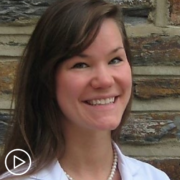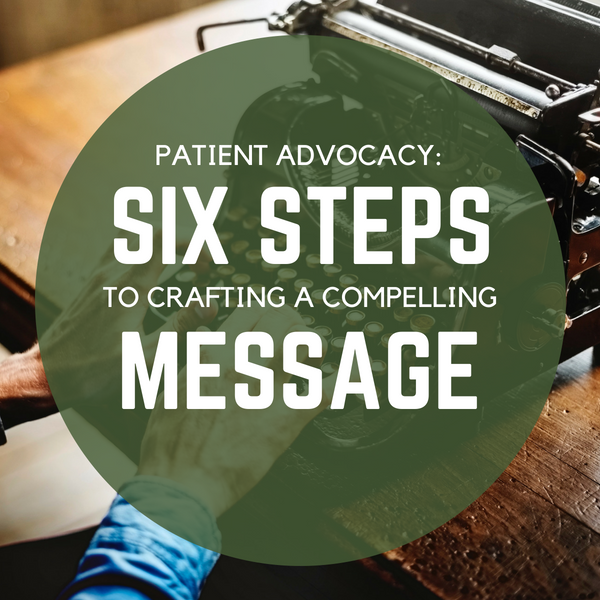Setting CLL Treatment Goals WITH Your Team
Setting CLL Treatment Goals WITH Your Team from Patient Empowerment Network on Vimeo.
What are the goals of CLL treatment? CLL expert Dr. Catherine Coombs explains how goals can vary by patient and discusses the benefits of making decisions with your healthcare team.
Dr. Catherine Coombs is an Assistant Professor of Medicine in the Division of Hematology at The UNC Lineberger Comprehensive Cancer Center. Learn more about Dr. Coombs here.
Related Resources:

|

|

|
Transcript:
Katherine:
Appropriate treatment obviously is part of thriving. Before we get into the specifics of CLL treatment approaches, how would you define treatment goals?
Dr. Coombs:
The first thing to jump into prior to going into treatment goals is asking the question, “Is treatment even needed?” CLL, in contrast to pretty much most other cancers, is not one of the cancers that needs to be treated immediately.
At least in 2022, there’s no proven benefit to early treatment. That is being questioned now that we have drugs that are much better tolerated. There are some nice clinical trials asking that question again, “Is early treatment beneficial?” At least what we know now is that is not the case. As it turns out, probably up to a third of patients with CLL never need treatment in their lifetime. That means that the disease progresses along usually at a slow pace, and individuals die from something else: any number of other potential causes of death.
The other two-thirds plus do need treatment at some point in their lifetime. The goals of treatment kind of depend on the patient. There’s not a one-size-fits-all approach in my view. I think it depends on what is most important to the patient.
I’ll give two drastic examples just to show how goals can be different. CLL often is a disease of older individuals. The average age of diagnosis is usually around 70 or so. But many patients have the disease for a few years, if not longer, prior to needing therapy. So, one example patient could be an 85-year-old individual who has had the disease for a decade and finally needs treatment. The goals of that patient may be to control disease, but he or she may not be worried about going into a deep remission, and may be very, totally willing to be on a drug. And definitely in order to control the disease, alleviate disease-related symptoms, but perhaps not get into a deep remission.
The other patient, just to take it to another far extreme, I work in an academic medical center; I see some very young patients which is not the norm in CLL, but it does happen.
Say it’s a 40-year-old patient. His or her goals may be very different. They may not like the idea of being on an oral therapy indefinitely or until progression. So, the goals for that patient may be different. They may say, “Gosh, I’d like to do something a bit more intense to be able to be off of therapy.”
So, I think in the end there’s no one-size-fits-all approach. It generally, for my clinic, comes down to a discussion with the patient talking about what their goals are: is it more important to be off therapy for some period of time and they’re willing to sacrifice a bit more intensive of a schedule? Or are they more appealing to be on a regimen that they’re on indefinitely provided that it still provides disease control and alleviation of the disease-related symptoms.
Katherine:
What is the patient’s role in setting care goals?
Dr. Coombs:
I think they should have a huge role; it should be a shared decision between the patient and their cancer doctor. I think at least as of now, there’s not one proven best therapy. We have a number of therapies that work extremely well. But they differ quite a bit with respect to the schedule, the possible side effects profile, and sometimes in the cost, depending upon the patient’s insurance.
Knowing that there’s not a superior therapy, I think the best approach would be to discuss all of the therapies that are highly effective, and then compare and contrast what those therapies may look like for the patient and then make a shared decision.










